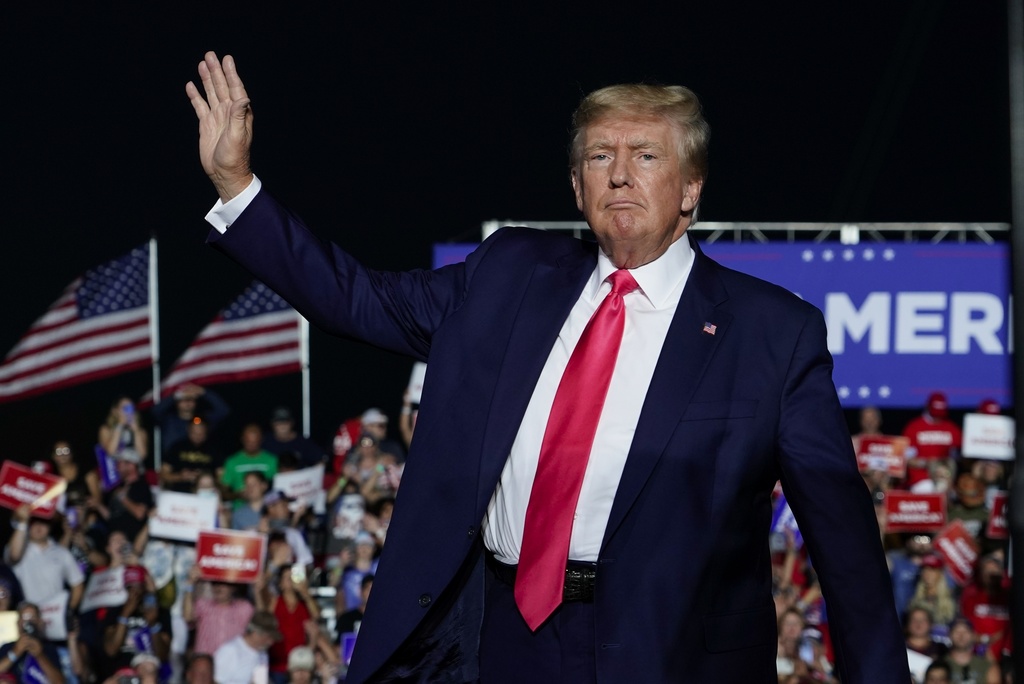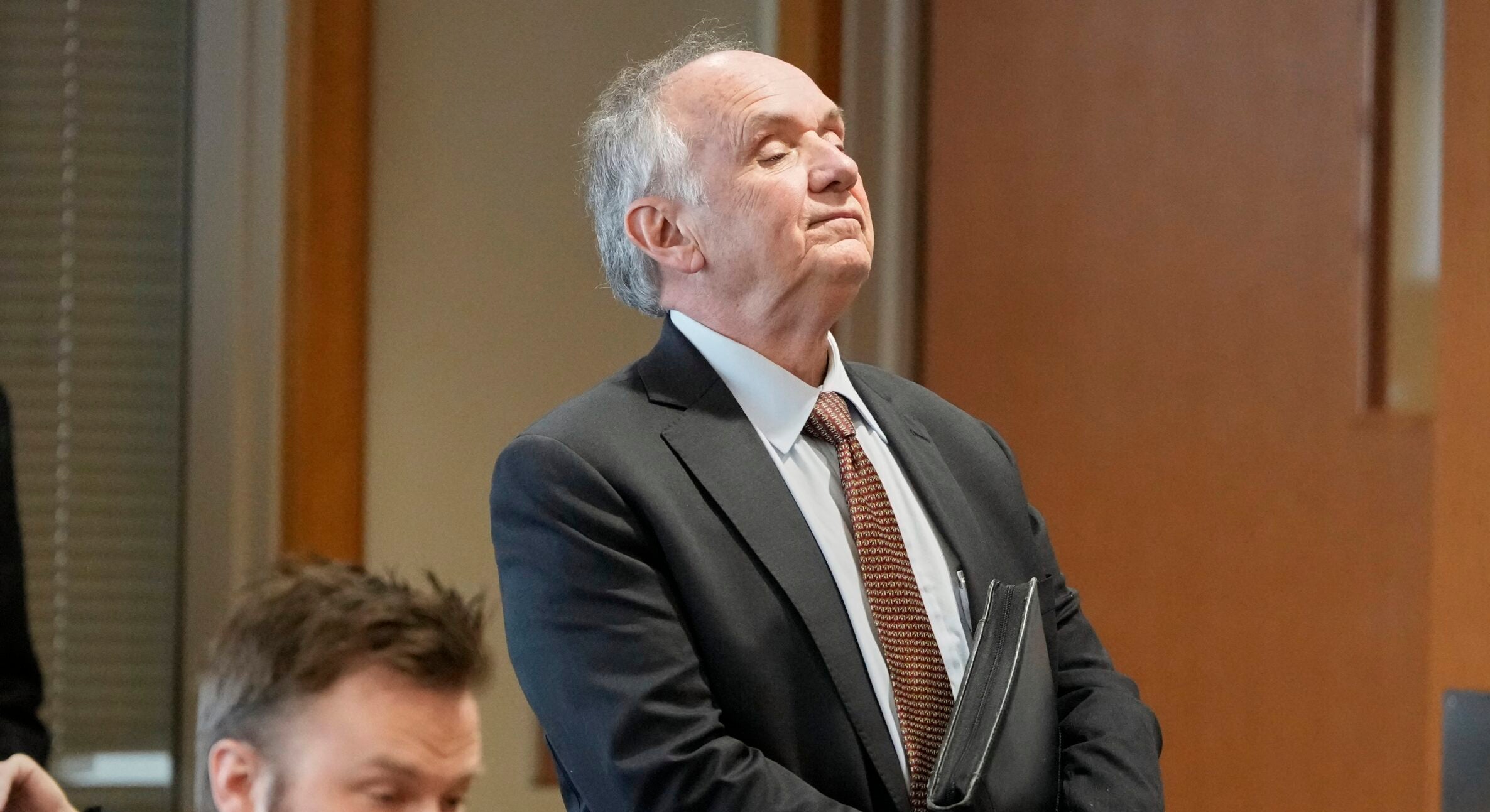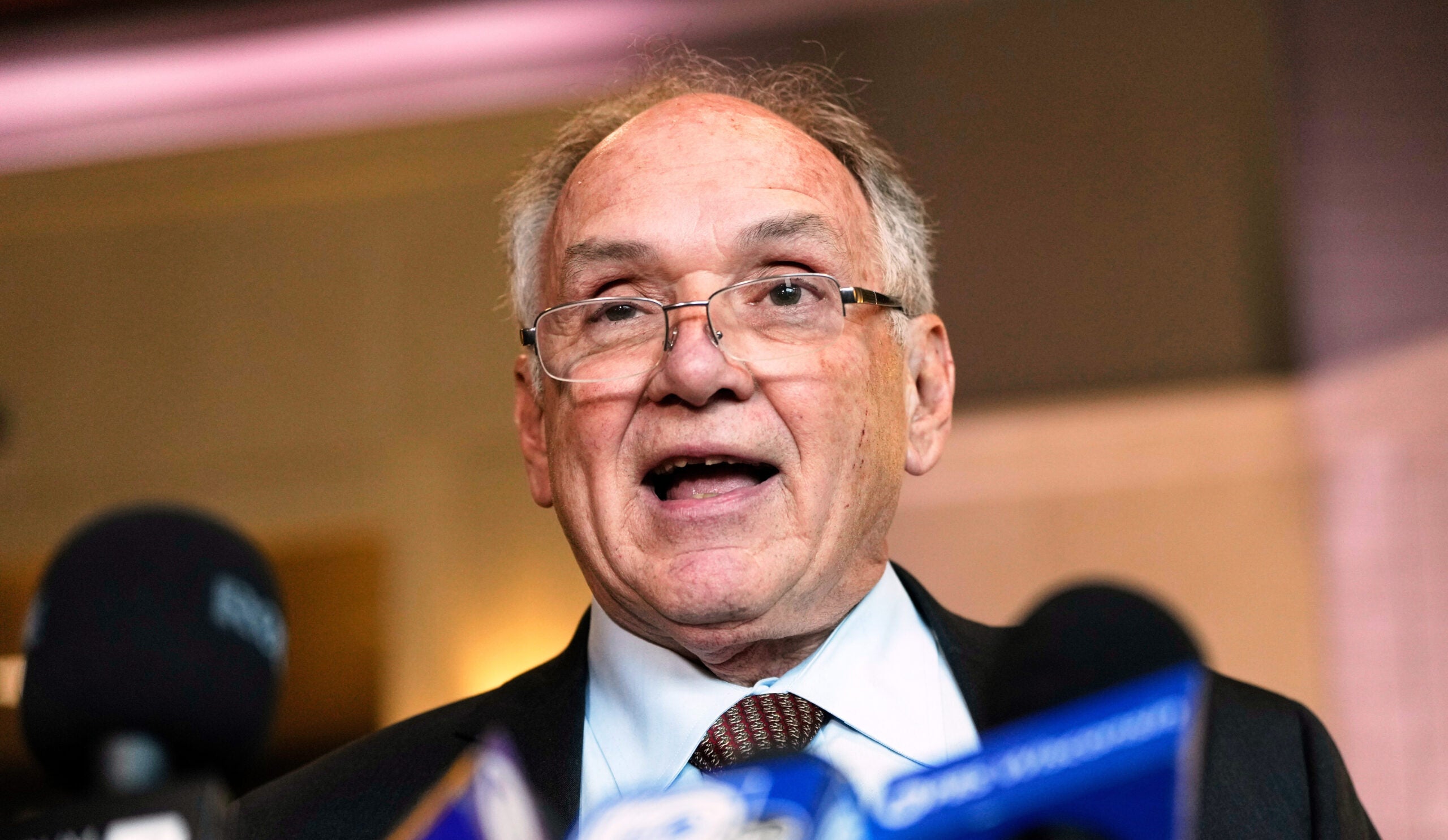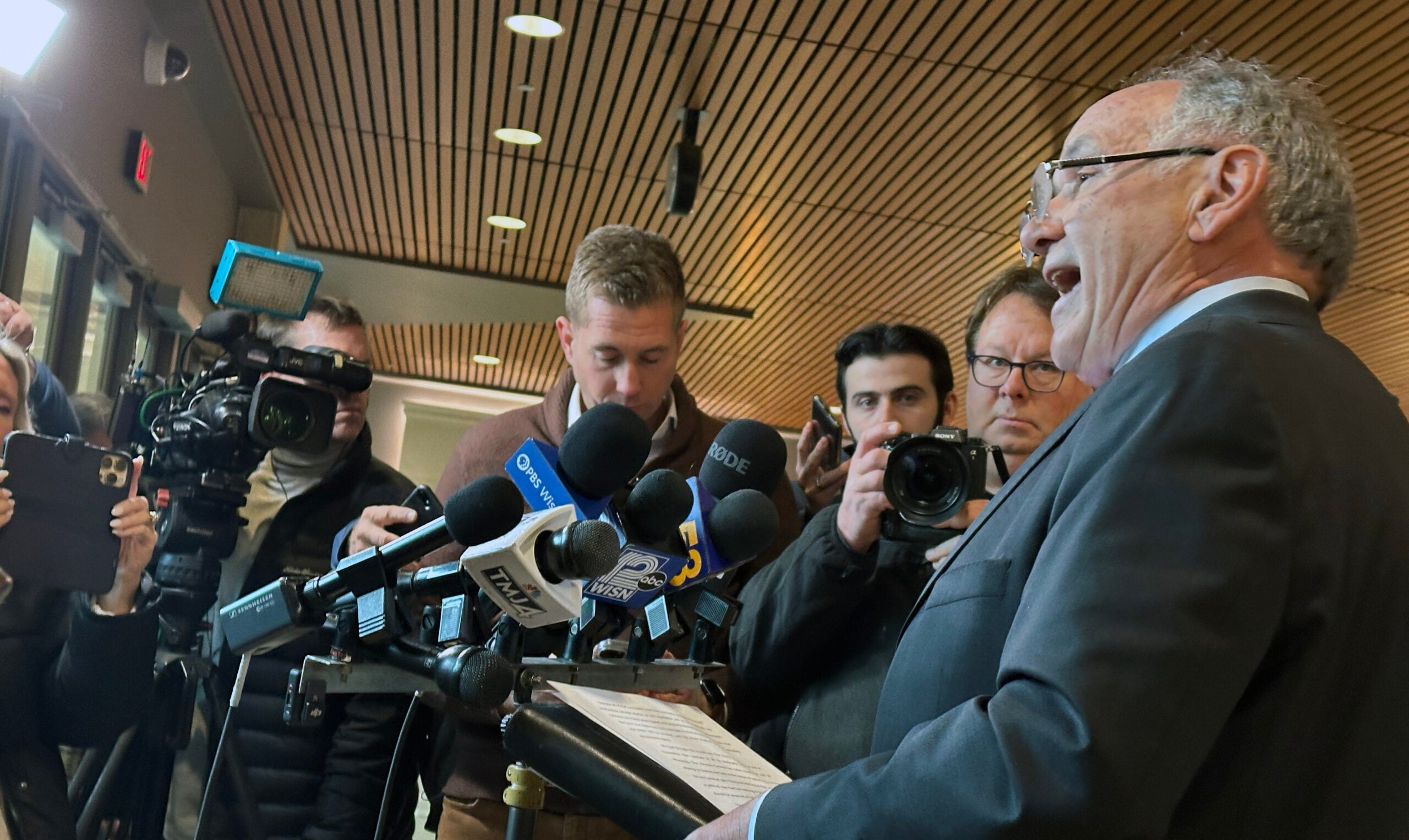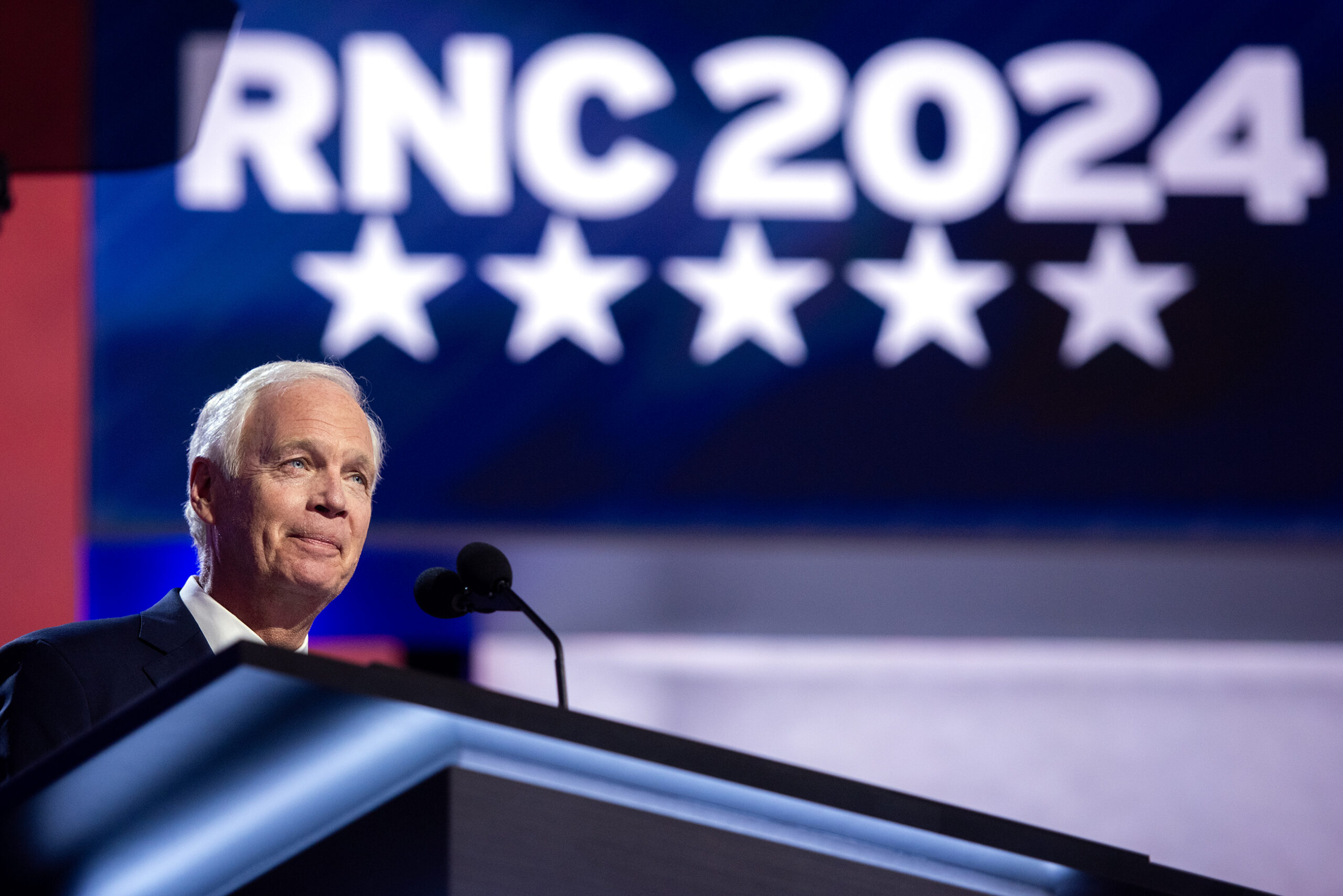A lawsuit against people who cast fraudulent electoral college votes for former President Donald Trump after he lost the state of Wisconsin in his 2020 reelection bid was partly settled on Wednesday, with the Trump allies formally stating their actions were “part of an attempt to improperly overturn the 2020 presidential election results.”
The false electors also agreed they will not serve as presidential electors in future elections “featuring” Trump — the current frontrunner for the 2024 Republican presidential nomination. They also pledged to cooperate with investigations into the deadly Jan. 6 riots at the U.S. Capitol.
The settlement is a response to a May 2022 lawsuit, which alleged the Wisconsin Republicans who posed as presidential electors paved the way for the deadly Jan. 6 riots at the U.S. Capitol.
News with a little more humanity
WPR’s “Wisconsin Today” newsletter keeps you connected to the state you love without feeling overwhelmed. No paywall. No agenda. No corporate filter.
Ten Republicans and two attorneys were named in the lawsuit. Wednesday’s settlement addresses the ten electors, while legal action against lawyers Jim Troupis and Kenneth Chesebro, who helped engineer the GOP electors strategy for Trump, is pending.
The group met at the state Capitol in Madison on Dec. 14, 2020, to cast votes for Trump, on the same day that Democratic electors cast official electoral votes for President-elect Joe Biden.
In a public statement, those defendants jointly say the document they signed on that day improperly said they were lawful electors.
“That document was then used as part of an attempt to improperly overturn the 2020 presidential election results,” the statement reads.
“We hereby reaffirm that Joseph R. Biden, Jr. won the 2020 presidential election and that we were not the duly elected presidential electors for the State of Wisconsin for the 2020 presidential election,” it continues. “We oppose any attempt to undermine the public’s faith in the ultimate results of the 2020 presidential election.”
The false electors had previously said they signed the document to maintain all legal avenues as challenges to Wisconsin’s electoral outcomes made their way through the courts. Under the terms of the settlement, the group makes no admission of “liability or culpability.”
The lawsuit was filed by the law firms Law Forward and Stafford Rosenbaum LLP, and by Georgetown University Law Center’s Institute for Constitutional Advocacy and Protection.
In a statement announcing the settlement, attorney Jeff Mandell said the false electors violated “bedrock principles” of electoral democracy.
“Wisconsin voters have been awaiting accountability for 3 years, and it is beyond time to hold those who perpetrated this scheme responsible for their actions,” he said. “This settlement agreement provides one piece of that accountability and helps ensure that a similar effort to subvert our democracy will never happen again.”
Wisconsin was a testing ground for a GOP false electors strategy
Wisconsin was not the only state to submit false electors in 2020. Other swing states, including Arizona, Georgia, Michigan, New Mexico, Nevada and Pennsylvania saw a version of the same actions take place in the leadup to the submission of votes to the electoral college.
But Wisconsin served as something of a roadmap to the other states, said McCord — a proving ground for a novel legal challenge, allegedly designed by Chesebro, to line up a slate of “alternate electors” in the event of successful challenges to Trump’s losses in key states.
Chesebro authored memos outlining the plan, which he shared with Troupis, Trump’s lead Wisconsin attorney, in the days immediately following the election.
“Wisconsin was really sort of ground zero for this scheme,” said Mary McCord, who directs the Institute for Constitutional Advocacy and Protection at Georgetown, which was a party to the case. “The memos about this scheme written by Kenneth Chesebro to James Troupis started out talking about doing it in Wisconsin, and from Wisconsin it spread to the other swing states.”
Chesebro has since pleaded guilty to felony conspiracy charges related to election interference in Georgia, and agreed to testify for prosecutors in Nevada and Arizona.
The Wisconsin Department of Justice has not publicly announced a criminal investigation into the false electors. A spokesperson for the agency told WPR it would not confirm or deny the existence of an investigation.
“Attorney General Kaul strongly believes that those who committed crimes in an effort to unlawfully subvert the outcome of an election should be held accountable,” the spokesperson said.
The case against attorneys Chesebro and Troupis is ongoing
The settlement ends the case against the 10 Republicans who acted as electors: Andrew Hitt, Robert Spindell, Bill Feehan, Kelly Ruh, Carol Brunner, Scott Grabins, Kathy Kiernan, Darryl Carlson, Pam Travis and Mary Buestrin.
Hitt is the former chair of the Wisconsin Republican Party, while Spindell sits on the Wisconsin Elections Commission, which administers state elections.
Liberal advocacy group A Better Wisconsin Together issued a statement Wednesday calling on Spindell to resign from the elections commission and for Troupis to resign from Wisconsin’s Judicial Conduct Advisory Committee.
“Ten MAGA Republican fake electors today publicly admitted that they tried to improperly overturn the 2020 election in Wisconsin,” the statement said. “It is simply unacceptable that either fake elector Bob Spindell or attorney Jim Troupis, who worked to facilitate the plot, continue to hold any position of public trust. They must either resign or be removed by their appointing authorities immediately.”
A statement from Democratic Party of Wisconsin Chair Ben Wikler called on Wisconsin Senate Majority Leader Devin LeMahieu, R-Oostburg, to remove Spindell from the WEC.
“Leader LeMahieu must make clear that there is no place in our system of election administration for an individual who now admits to conspiring to overturn an election,” Wikler said.
Spindell did not immediately respond to a WPR request for comment.
In a statement from the Wisconsin Republican Party, executive director Mark Jefferson maintained the defendants’ argument that the group met in order to cover all legal bases.
“As we’ve said from the beginning, Republican electors met in December 2020 to preserve our legal options,” Jefferson said. “It remains our understanding that had the courts ultimately ruled in our favor, it would have been necessary for GOP electors to meet at that time and location for Wisconsin’s electoral votes to have been counted. All action taken to produce an alternate slate was only done to preserve an ongoing legal strategy and only to be used in the event a court of law gave the alternate slate meaning.”
The lawsuit also asked for up to $2.4 million in punitive damages — up to $200,000 per defendant. Monetary damages are not part of the settlement with the electors, said Georgetown’s McCord.
Damages remain “on the table” in the ongoing case against Troupis and Chesebro, she added.
Editor’s note: WPR’s Rich Kremer contributed reporting.
Wisconsin Public Radio, © Copyright 2025, Board of Regents of the University of Wisconsin System and Wisconsin Educational Communications Board.

